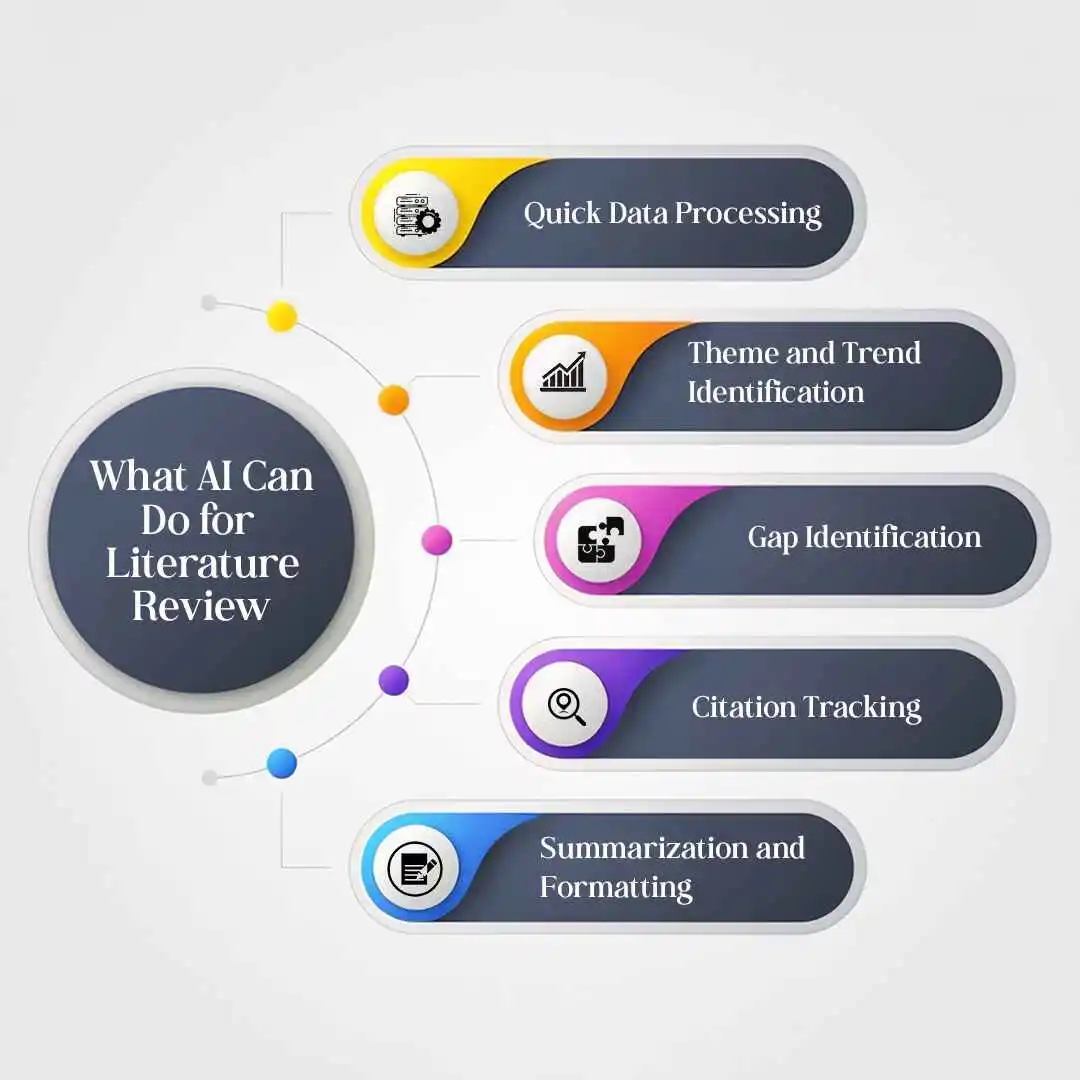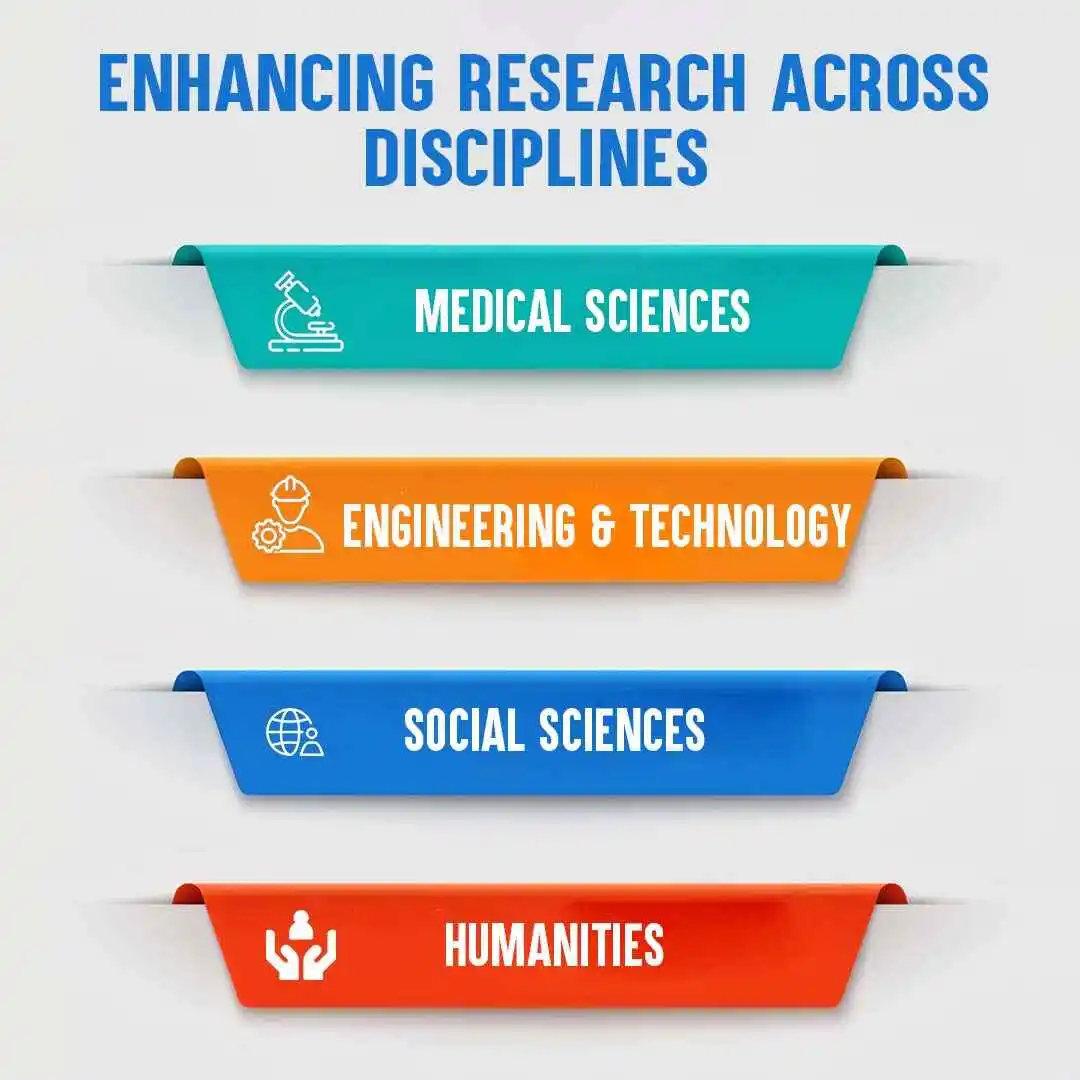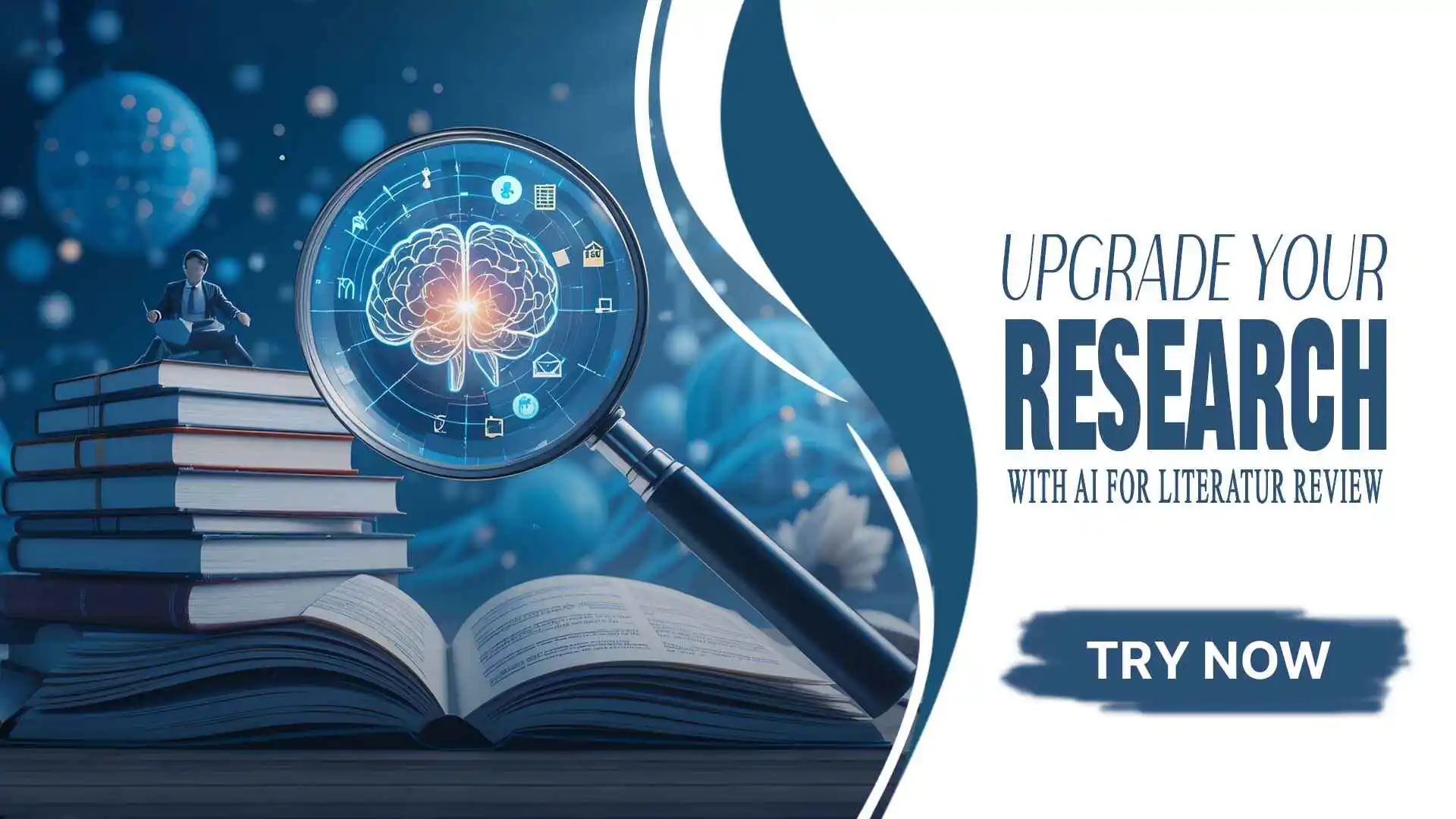Upgrade Your Research with AI for Literature Review – Try Now
Efficiency and accuracy characterize effective scholarship in today's fast-moving academic environment. Among the most time-consuming processes that researchers have to undergo is literature review, a crucial process that makes up the core of each study. Fortunately, technology has created new windows of opportunity, and the application of AI for literature review is revolutionizing the way students, researchers, and professionals undertake this crucial phase of study. If you’ve been searching for ways to make your work easier and more effective, this is the perfect time to discover how AI can elevate your writing process.
This blog shows how researchers, especially beginners, can use AI to make literature reviews faster, more accurate, and impactful
Why the Literature Review Matters

All academic work starts off with a plunge into the sea of previous research. A literature review is not merely an abstract account—it is an intellectual map that:
-
Identifies areas of existing knowledge that are not covered.
-
Analyzes previous findings critically.
-
Lays the groundwork for new arguments and hypotheses.
-
Avoids unnecessary duplication of previous work.
Without it, research can become redundant, superficial, or partial. But the ritual of sourcing, assessing quality, distilling findings, and organizing references is notoriously laborious. One well-researched review can cost weeks or even months.
This is where AI for literature review comes in as a life-saver. Rather than drowning in piles of papers, you can use AI to sift through and pinpoint the most pertinent sources at speed—providing you with a formatted overview and releasing your energy for analysis and critical interpretation.
What AI Can Do for Literature Review
AI is not a substitute for human intelligence; it is a tool of augmentation that makes the research process smarter and quicker. Some of its primary functions are:
Quick Data Processing
AI can read thousands of studies within minutes, creating organized abstracts that summarize key findings, methods, and conclusions.
Theme and Trend Identification
Rather than clustering sources manually, AI can classify literature into themes, detect most cited works, and demarcate growing trends.
Gap Identification
By examining where present research is focused, AI can uncover unexplored topics. This is especially valuable for doctoral students or beginning researchers who need to prove the uniqueness of their research.
Citation Tracking
AI is able to track citation networks and allow researchers to view how ideas develop over time and across disciplines.
Summarization and Formatting
Several AI tools give brief abstracts of articles and can even incorporate findings into reference managers for easy citation management.
With these abilities, AI enables you to concentrate on the interpretation and evaluation of literature instead of wasting your time on repetitive work.
Time-Saving Benefits of AI for Literature Review
Perhaps the most significant strength of AI is that it can save time without compromising on quality. Work that used to take weeks—e.g., collecting dozens of papers, scanning abstracts, and creating bibliographies—can now be done in hours.
This isn't merely a matter of speed; it's a matter of releasing intellectual bandwidth. By freeing up mechanical steps, AI helps you:
-
Invest more energy into argument-building.
-
Refine your theoretical framework.
-
Sharpen your methodology.
-
Develop more insightful conclusions.
That is, AI not only saves time—it increases the worth of your research product.
Improving Accuracy and Depth

Human fallibility is unavoidable in the handling of huge quantities of data. Prominent studies can go unnoticed, or results misinterpreted. AI reduces these threats by:
-
Proving extensive coverage of existing studies.
-
Identifying subtle connections between studies.
-
Citing citation networks to reveal sources of influence.
-
Removing redundancy in the choice of articles.
This produces a literature review that is rigorous, systematic, and academically sound. Rather than superficial overviews, you learn more about the development of ideas, tensions between theories, and new areas of ignorance.
Enhancing Research Across Disciplines
The advantages of AI for reviewing literature are not limited to a single discipline. They reach across fields, such as:
Medical Sciences:
AI can quickly scan the most recent results on treatments, patient outcomes, and clinical trials.
Engineering & Technology:
AI enables the monitoring of innovations, contrasting approaches, and signaling advantages in technical change.
Social Sciences:
AI applications can sift through theoretical approaches, scan trends in human actions, and consolidate mixed case studies.
Humanities:
AI is able to critique emerging critical theories, monitor thematic evolution, and coordinate sophisticated interpretive disputes.
Such cross-disciplinary capability opens doors for interdisciplinarity, enabling scholars to shatter silos and join wider intellectual debates.
Addressing Common Concerns
The most common fear among researchers is the risk of overdependence on AI. Some have the fear that technology will take over critical thinking. In actual fact, AI is just a tool and not a replacement for intellectual imagination.
The researcher is still in charge:
AI sorts and screens, but interpretation, critique, and synthesis remain with the human brain.
AI minimizes distractions:
By eradicating repetitive tasks, it makes more intense focus on complex analysis possible.
AI provides greater quality:
Instead of compromising on standards, AI avoids gaps, redundancies, and lapses in coverage.
AI, in short, adds to—not supplants—the researcher's work. It is a matter of working smarter, not harder.
The Future of Research with AI for Literature Review
Researchers can look forward to more advanced features from AI as it continues to enhance, such as:
Predictive Citation Mapping:
AI software that foretells which literature will most likely shape future scholarship.
Enhanced Thematic Clustering:
More elegant grouping of studies into subtopics for simpler exploration.
Real-Time Research Updates:
Notifications fom software that refresh literature reviews as new research becomes available.
Collaborative AI Platforms:
Open forums where global researchers cross-reference views and make use of communal databases.
Such a future brings an interactive, inclusive, and fruitful academic space. By adopting AI for literature review today, you set the trends for tomorrow's academia.
Final Thoughts
You don't have to toil through literature reviews. AI makes it possible for you to:
-
Save time.
-
Minimize errors.
-
Provide better research.
You're either a student, a doctoral candidate, or a professional. AI tools assist you in working smarter, not harder.
Don't get bogged down in old ways embracing AI for literature review and elevate your research today!
